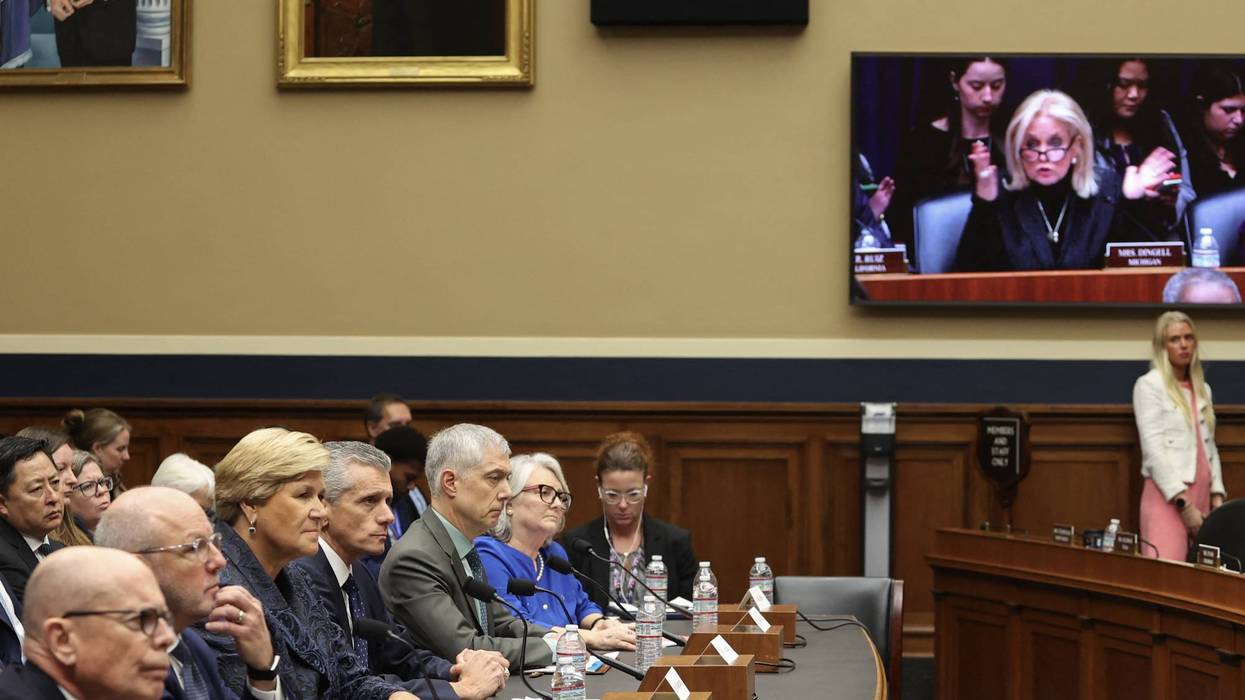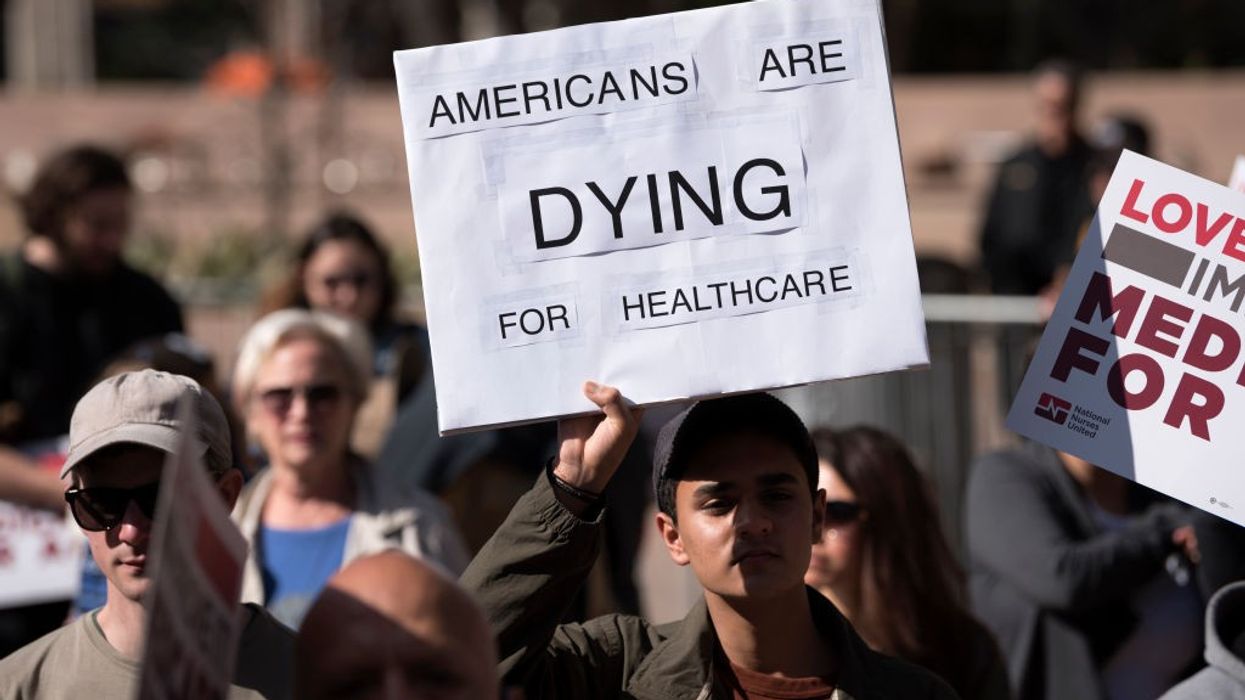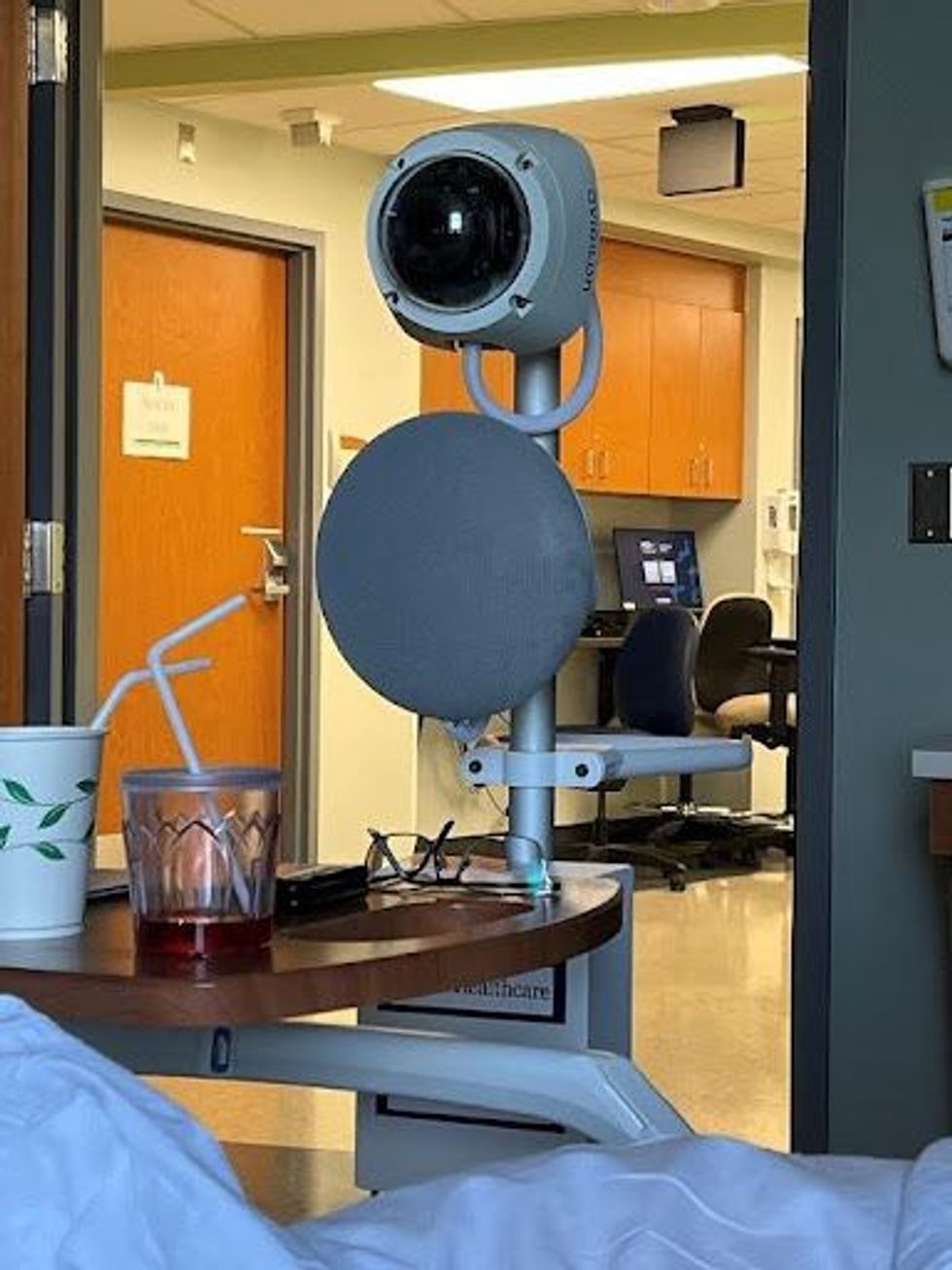Insurance CEO Testimony ‘Made Case for Medicare for All Better Than Almost Anyone'
"Under Medicare for All, these insurance vultures who profit from the suffering of everyday Americans would all be out of a job—bringing down costs across the health system—which should be reason enough to support it," said one advocate.
If you want a compelling case for Medicare for All, just listen to the ultra-rich CEOs of the insurance companies profiting off the United States' disastrous for-profit status quo.
That was Public Citizen healthcare policy advocate Eagan Kemp's takeaway from congressional testimony delivered Thursday by the top executives of UnitedHealth Group, Cigna, Aetna owner CVS Health, Elevance, and Ascendiun, some of the largest beneficiaries of a system under which millions of Americans face massive costs, care denials, and labyrinthine administrative hurdles.
"In both of today’s House hearings, health insurance executives’ devil-may-care attitude towards Americans’ health made the case for Medicare for All better than almost anyone I have ever seen," Kemp said in a statement following the hearings held by the House Ways and Means Committee and the House Energy and Commerce Committee's healthcare panel.
"Rarely has there been a more feckless, uncaring, and unsympathetic group of paper pushers," said Kemp. "Under Medicare for All, these insurance vultures who profit from the suffering of everyday Americans would all be out of a job—bringing down costs across the health system—which should be reason enough to support it. We need Medicare for All to finally put us on par with every other comparably wealthy country by guaranteeing everyone in the U.S. can get the health care they need, throughout their lives."
The executives faced angry grilling from both Democrats and Republicans during Thursday's hearings, which came as health insurance premiums are skyrocketing due to the GOP's refusal to extend Affordable Care Act (ACA) subsidies that lapsed at the end of 2025.
"Do you understand why the American people are not a fan of UnitedHealthcare and big healthcare companies?" Rep. Nanette Barragán (D-Calif.) asked UnitedHealth Group CEO Stephen Hemsley, telling the story of a 3-year-old girl whose family was forced to take on more than $1 million in medical debt and declare bankruptcy because the insurance giant would not cover doctors' recommended treatment for a tumor in her bladder.
Rep. Greg Murphy (R-NC), who recently underwent brain surgery, told the insurance executives that he faced eight care denials for necessary medication.
"You have put profits above patients, and you have put profits above those who care for patients," said Murphy, a physician. "If it were up to me, I would throw out all for-profit systems in this country and turn everybody into nonprofit. It has gotten that bad."
"If I had my way, I'd turn all of you guys into dust," he added. "We'd start back from scratch."
The @WaysandMeansGOP held a hearing on the impact of rising health care costs on patients and families.
We have to have serious reform of health insurers, pharmacy benefit managers, and their subsidiaries to reduce the cost of healthcare. pic.twitter.com/pQEE4WgQtk
— Congressman Greg Murphy, M.D. (@RepGregMurphy) January 22, 2026
The insurance executives attempted to shift the blame for high costs and other systemic issues onto hospitals, doctors, and pharmaceutical companies, while offering Band-Aid solutions.
UnitedHealth Group's CEO pledged during his testimony to return its 2026 Affordable Care Act profits to consumers in the form of rebates.
"If you’re feeling a little misty-eyed about this sudden burst of corporate altruism, let me save you the trouble. This isn’t a moral awakening. It’s a PR maneuver and narrative control being implemented in real-time," said Wendell Potter, a former health insurance executive who now supports Medicare for All, which would virtually eliminate private insurance and provide comprehensive health coverage for everyone in the US for free at the point of service, for a lower overall cost than the for-profit status quo.
"UnitedHealth’s pledge is just a long, desperate PR pass into the end zone, praying lawmakers and reporters will focus on the gesture instead of the business model that allows them to gobble up those dollars in the first place," Potter added. "This isn’t a gift. It’s a distraction."
Kemp of Public Citizen said Thursday that “in the short term, the Senate must pass a clean three-year extension of the enhanced ACA premium tax credits to address runaway premium increases for millions of Americans."
"In the long run," he added, "we must continue building the movement that will pass Medicare for All and make it the law of the land."



 a camera monitor is used in patient rooms on August 2025 at HCA/Healthcare. (Photo by Donna Smith)
a camera monitor is used in patient rooms on August 2025 at HCA/Healthcare. (Photo by Donna Smith)